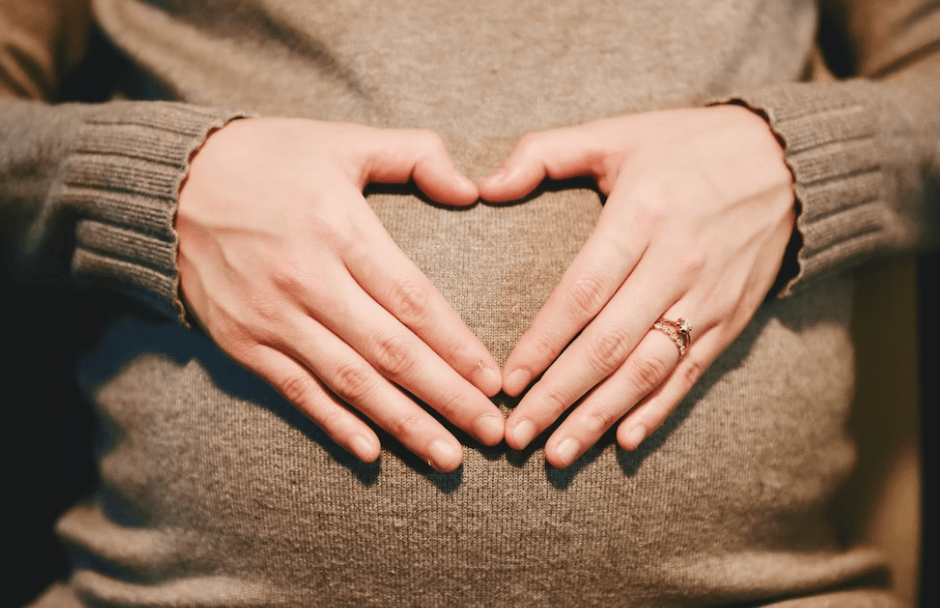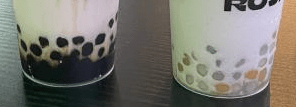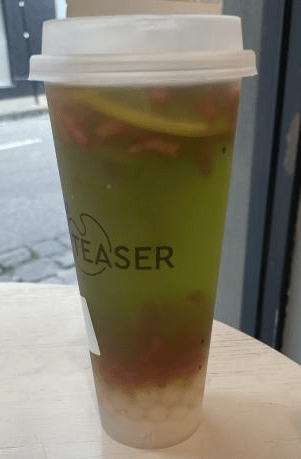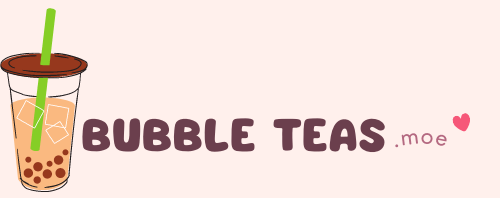Pregnancy is a delicate time for women, and many of them avoid certain types of food or drink to ensure the health of their babies. Boba tea is a beverage that has gained popularity in recent years, but some pregnant women might be hesitant to try it. Boba tea, also known as bubble tea, consists of a tea base mixed with milk or fruit juice and chewy tapioca balls or pearls. This article will provide information on whether pregnant women should avoid drinking boba tea.
A cup of boba tea usually contains black or green tea, but the amount of caffeine in boba tea varies depending on the type of tea, the amount of tea used, and the drink’s size. Tea contains caffeine, and overconsumption of caffeine can be harmful to a baby’s development. However, boba tea is generally safe for pregnant women when consumed in moderation. Pregnant women can choose to avoid drinking boba tea, but there’s no need to worry if they consume it in small amounts.
The Basics of Boba and Pregnancy, Making Boba Tea Safe for Pregnant Women
Boba or bubble tea is the Taiwanese tea of choice for young people, especially for those who crave a sweet treat. However, for pregnant women, there may be some concern about whether it’s safe to drink boba or bubble tea. So, can pregnant women drink boba tea?
The tea base of boba tea is generally safe for pregnant women. Whether it’s green jasmine tea, black tea, or regular tea, the tea is usually served cold and made from pasteurized milk, fruit juice, or sweetened condensed milk. The tapioca pearls, or chewy tapioca balls, are made from tapioca and are typically boiled, so they are safe to consume during pregnancy. The amount of caffeine in boba tea varies depending on the type of tea and milk or fruit used. However, it’s generally safe for pregnant women to consume boba tea in moderation and avoid drinking boba tea excessively.
It’s important to note that tea contains caffeine, which is a stimulant that can cross the placenta and affect the fetus. Therefore, pregnant women should be mindful of their caffeine intake during pregnancy. Green tea, which contains less caffeine than black tea, is a healthier option. Decaf tea is also an alternative for those who want to avoid caffeine, and fruit tea is usually caffeine-free.
Many pregnant women enjoy drinking boba or bubble tea because of its sweet taste. However, it’s essential to consider the ingredients in boba tea, which can include fruit syrup, honey, or sugar. Pregnant women should limit their sugar intake, as excessive sugar consumption can increase the risk of gestational diabetes and other health issues. It’s best to opt for milk or fruit that has natural sweetness.
Boba or bubble tea is generally safe for pregnant women to consume in moderation. It’s important to choose a reputable boba tea shop that uses pasteurized milk and boiled tapioca pearls. Pregnant women should also be mindful of their caffeine and sugar intake and choose healthy drink options that are safe during pregnancy.

Risks Associated with Drinking Boba while Pregnant
Drinking tea during pregnancy is usually considered a safe option, but it’s unclear whether boba or bubble tea should be on the list of safe drinks for pregnant women. Boba tea is a type of tea often made with milk or fruit juice and chewy tapioca balls. The tapioca pearls are typically made from tapioca starch. Tea contains caffeine in varying amounts based on the type of tea, and some boba or bubble teas contain sweetened condensed milk, which adds to the overall calorie and sugar content.
While the amount of caffeine in boba tea varies depending on the type of tea used and the amount of tea in the drink, a cup of boba tea can have about 70 mg of caffeine. Pregnant women are advised to limit their caffeine intake during pregnancy to 200 mg per day or less. Caffeine in black or green tea is generally safe for pregnant women, but it’s recommended to drink them in moderation.
One concern about boba tea is sweetened condensed milk, which is a common ingredient in the drink. This milk is not pasteurized and may carry the risk of listeria, a type of bacteria that can be harmful to pregnant women’s health. However, boba tea can be made with pasteurized milk that is deemed safe for pregnant women to consume.
Another concern is the chewy tapioca balls called “boba” or “tapioca pearls” used to make boba tea. While tapioca pearls are widely used in many foods, including baby food, it is still unclear whether they are safe for pregnant women to consume. However, boba tea is generally safe for pregnant women to drink in moderation, without consuming too many tapioca balls.
Pregnant women should approach Boba tea with caution. Boba tea is generally safe for pregnant women to consume in moderation as long as it is made with pasteurized milk and without consuming too many tapioca balls. Pregnant women should watch their caffeine intake and limit their consumption to 200 mg of caffeine per day or less.
Ingredients in Boba and Their Effects on Pregnancy
Boba tea is generally safe for pregnant women to drink in moderation because it contains it mostly contains tea, milk, and tapioca balls. However, there are a few things to consider:
- Amount of Caffeine: Black tea, which is commonly used as the base for boba tea, contains caffeine. Different boba shops may use different amounts of black tea, which means the caffeine content can vary. Pregnant women should limit their caffeine intake during pregnancy, so it’s essential to drink boba tea in moderation. Moreover, green tea contains slightly less caffeine than black tea, so pregnant women may prefer to drink green tea-based boba.
- Tapioca Pearls: Boba tea is made with round and chewy tapioca balls, which are made from tapioca flour. These chewy tapioca balls are safe to consume during pregnancy as they are made from cassava root. However, some bubble tea shops may add extra food coloring or preservatives, and it’s better to drink boba made with all-natural ingredients.
- Sweetened Condensed Milk: Boba tea usually includes sweetened condensed milk, which adds to the drink’s sweetness. If a pregnant woman has gestational diabetes or sugar problems, it’s better to avoid drinking boba tea altogether.
Numerous milk, fruit, and green tea options are available for boba tea, making it a healthy drink choice for non-pregnant people. Pregnant women should speak with their healthcare professional to determine if boba tea is right for them and how much they can safely consume.
Is There Caffeine in Boba Tea?
Caffeine, the natural stimulant that gives us that welcome jolt of energy, is commonly found in tea, coffee, and other caffeinated beverages. When it comes to boba tea, the caffeine content can vary depending on several factors, including the type of tea used, brewing techniques, and the proportions of tea and other ingredients.
Typically, boba tea incorporates either black tea or green tea, both of which naturally contain caffeine. It’s important to note that black tea generally has a higher caffeine content compared to green tea. As a general estimate, an 8-ounce cup of black tea may contain approximately 40-70 milligrams of caffeine, while the same amount of green tea ranges from 20-45 milligrams. However, it’s essential to keep in mind that these figures are approximate, as the actual caffeine content can vary depending on various factors like the brand, brewing time, and other variables.
Interestingly, while the tapioca pearls that give boba tea its unique texture do not contain caffeine, additional add-ins like jelly, pudding, or popping boba may contain caffeine or other stimulating ingredients. Therefore, if you’re looking to manage your caffeine intake or are sensitive to its effects, it’s essential to inquire about the ingredients in these additional toppings.
As an expectant mother or someone looking to limit their caffeine consumption, fear not! There are ways to enjoy boba tea while still being mindful of your caffeine intake. Consider opting for decaffeinated tea options, which provide the flavors you love without the stimulating effects of caffeine. You can also explore alternative tea bases such as herbal teas or fruit-infused teas that naturally contain less or no caffeine.
Alternatives to Drinking Boba while Pregnant
Boba tea, also known as bubble tea or milk tea, is a popular drink that originated from Taiwan. It is typically made by blending black or green tea with milk, fruit, or sweetened condensed milk, and then adding chewy tapioca pearls, also known as tapioca balls. However, many pregnant women wonder if it is safe to drink boba tea while pregnant due to the amount of caffeine, sugar, and tapioca pearls used in the recipe.
While some studies have linked high caffeine intake during pregnancy with an increased risk of miscarriage and low birth weight, the amount of caffeine in boba tea varies depending on the type of tea used and the amount of tea in the drink. Generally, a cup of boba tea contains between 30-50 mg of caffeine, which is lower than a cup of coffee but still has some caffeine. Pregnant women can opt for decaf tea or fruit tea instead of black tea to reduce caffeine intake.
In addition, the chewy tapioca pearls used in boba tea are made from tapioca starch and sweetened with sugar, which can increase the drink’s sugar content. Instead of drinking boba tea, pregnant women can look for alternative beverages that are lower in sugar such as green jasmine tea or milk and tea. It is also important to check the ingredients in boba tea, as some recipes may contain unpasteurized milk or fruit juice, which can pose a risk for pregnant women.
Pregnant women can also consider making their own boba tea at home to ensure the ingredients are safe and healthy. They can substitute regular tea with decaf tea or use milk alternatives such as almond milk or soy milk to reduce the amount of sugar and calories. Additionally, it is recommended for pregnant women to drink boba tea in moderation, as too much sugar and caffeine can lead to adverse effects on pregnant women’s health.
While boba tea is a fun and tasty drink, it is important for pregnant women to consider safer alternatives or to consume it in moderation. If you’d love to enjoy a cup of bubble tea when you’re pregnant you can still enjoy a healthy drink by choosing wisely and checking the ingredients in their food or drink.

Tapioca Pearl Alternatives to Make Bubble Tea Safe for Pregnant Women
- Chia Seeds: Chia seeds are tiny powerhouses packed with essential nutrients like omega-3 fatty acids, fiber, and antioxidants. When soaked in liquid, chia seeds develop a gel-like texture, making them a fantastic substitute for tapioca pearls. Simply add a tablespoon of chia seeds to your brewed tea and let them soak for a few minutes until they expand and create a delightful bubble tea experience.
- Fruit Cubes: If you’re looking to add a burst of fruity goodness to your bubble tea, try using frozen fruit cubes. Chop your favorite fruits, such as strawberries, watermelon, or mango, into small cubes and freeze them. When you’re ready to make your bubble tea, add a handful of these frozen fruit cubes to your tea for a naturally sweet and refreshing twist.
- Aloe Vera: Known for its soothing properties, aloe vera gel can be a unique addition to your bubble tea. Make sure to use pure aloe vera gel or extract, avoiding any added sugars or artificial ingredients. Scoop a tablespoon of aloe vera gel into your tea, and not only will it provide a chewy texture, but it will also add a touch of coolness to your beverage.
- Popping Boba: Popping boba are small, fruit-flavored juice balls that burst with flavor when you bite into them. They come in a variety of flavors such as strawberry, mango, lychee, and passion fruit, making them a fun and safe alternative to tapioca pearls. Add a spoonful or two of popping boba to your bubble tea, and enjoy the delightful sensation of juicy bursts with every sip.
- Coconut Jelly: For those who enjoy a tropical twist in their bubble tea, coconut jelly is a fantastic option. Made from coconut water or coconut milk, this jelly-like treat offers a subtle coconut flavor and a slightly chewy texture. Cut the coconut jelly into small cubes and add them to your tea for a delightful flavor combination.
Expert Recommendations for Making Boba Tea Safe During Pregnancy
When it comes to consuming boba tea or bubble tea during pregnancy, it is understandable that many pregnant women have concerns regarding the safety of these popular beverages. There are plenty of rumors concerning the ingredients and preparation of boba tea, which can cause confusion as to whether the drink is safe for consumption or not. Here are some expert recommendations for pregnant women who may be wondering whether they can drink boba tea while pregnant.
Tapioca Pearls and Sweetened Condensed Milk in Boba Tea
Boba tea is usually made from brewed tea and mixed with milk or fruit juice, which is then sweetened and flavored. Tapioca pearls – also known as boba or chewy tapioca balls – are added to the drink, making the drink complete. While tapioca pearls are safe to consume during pregnancy, sweetened condensed milk is known to have high sugar content. Therefore, it is recommended that pregnant women consume boba tea in moderation and avoid drinking it too often.
Caffeine and Boba Tea
Like regular tea, boba tea contains caffeine, which can have negative effects on both pregnant women and their developing fetuses if consumed in large amounts. Typically, a cup of boba tea contains around 30-50 milligrams of caffeine, depending on the type of tea used. Pregnant women are encouraged to limit their caffeine intake during pregnancy to a maximum of 200 milligrams per day, therefore boba tea should be consumed in moderation.
The Type of Tea Used in Boba Tea
Boba tea is made from a variety of tea bases such as black, green, jasmine, or fruit tea. Black or green tea is commonly used in making boba tea, and both types of tea generally have similar caffeine amounts. While green tea contains less caffeine than black tea, it is recommended to consume both types of tea in moderation during pregnancy.
Safety Precautions when Consuming Boba Tea
Pregnant women are generally encouraged to exercise caution when consuming food or drinks outside of their homes. When consuming boba tea outside, it is recommended to avoid purchasing the drink from street vendors or to cafes with questionable hygiene practices. For pregnant women, it is better to order boba tea from trustworthy tea shops that use clean preparation techniques and high-quality ingredients. It’s best for pregnant women to decide which ingredients to use and make boba tea at home so that they can monitor the amount of caffeine and sweeteners used.
Can Boba be Consumed in Moderation during Pregnancy?
Many pregnant women wonder if they can safely consume boba during pregnancy. The good news is that it’s generally safe to drink boba tea while pregnant, as long as it’s consumed in moderation.
The tapioca pearls in boba tea are made from tapioca starch and are a source of carbohydrates. While there is not much research on the safety of tapioca pearls during pregnancy, they are generally considered safe to consume in moderation as part of a balanced diet.
If you want to be extra cautious, you can ask the boba tea shop if their tapioca pearls are made from pasteurized starch and if their milk and fruit juices are pasteurized as well. This can help reduce the risk of consuming harmful bacteria that could harm pregnant women and their developing fetuses.

Is Tea Safe for Pregnant Women to Drink During Pregnancy?
Pregnancy is a time of great joy and anticipation for expectant mothers. It is also a period characterized by increased caution when it comes to consuming food and beverages. Many women wonder whether they can continue enjoying their favorite drinks, such as tea, without harming their developing baby. In this article, we will explore the safety of drinking tea during pregnancy and provide you with the information you need to make an informed decision.
Tea is a popular beverage enjoyed by millions of people around the world. It comes in various types, including black, green, herbal, and white tea, each with its own unique flavor and health benefits. However, when it comes to pregnancy, it is crucial to be aware of the potential effects that certain components of tea may have on both the mother and the baby even though tea is a safe drink in general.
Caffeine is a well-known stimulant found in tea and other beverages like coffee and soda. It is known to cross the placenta and can affect the developing fetus. Therefore, it is generally recommended that pregnant women limit their caffeine intake. High levels of caffeine have been associated with an increased risk of miscarriage and preterm birth. It may also contribute to low birth weight and developmental issues in the baby.
While tea contains caffeine, the caffeine content varies depending on the type of tea and how it is prepared. Generally, black tea has the highest caffeine content, followed by green tea, while herbal teas are naturally caffeine-free. It is important to note that herbal teas are not actually tea, as they are made from different plants or herbs and do not contain tea leaves. Instead, they are infusions of various botanical ingredients.
If you enjoy black or green tea, it is advisable to consume them in moderation during pregnancy. The American College of Obstetricians and Gynecologists (ACOG) recommends that pregnant women limit their caffeine intake to no more than 200 milligrams per day, which is roughly equivalent to one 12-ounce cup of coffee. To put it into perspective, an 8-ounce cup of black tea contains about 40-70 milligrams of caffeine, while the same amount of green tea contains around 20-45 milligrams.
Herbal teas, on the other hand, are generally considered safe for consumption during pregnancy. However, it is essential to choose herbal teas wisely, as some herbs may have adverse effects on pregnancy. Certain herbs, such as chamomile, peppermint, ginger, and raspberry leaf, are commonly recommended and have been used traditionally to support women during pregnancy. These herbal teas are generally regarded as safe when consumed in moderation. Herbal tea used in bubble tea can help you stay hydrated and provide some nutritional benefits.
Chamomile tea is known for its calming properties and may help alleviate sleep disturbances and anxiety, which can be common during pregnancy. Peppermint tea is often used to soothe digestive discomfort, such as nausea and indigestion, which are frequent complaints among pregnant women. Ginger tea has been used for centuries to relieve morning sickness and can be a helpful natural remedy. Raspberry leaf tea is believed to strengthen the uterus and may be beneficial in preparing for labor, but it is advisable to consult with a healthcare professional before consuming it.
While herbal teas are generally considered safe, it is important to note that some herbal products, including teas, are not regulated by the Food and Drug Administration (FDA). Therefore, it is crucial to choose reputable brands and sources to ensure the quality and safety of the herbal teas you consume during pregnancy. Make sure to read the nutritional labels to make your tea safe during pregnancy!
Tips for Safe Boba Consumption During Pregnancy, Drink Bubble Tea While Pregnant
Pregnancy is a time when many women pay close attention to their diet and food habits to ensure they are making the best choices for their growing baby. One of the popular drinks people wonder about is boba tea. Boba, also known as bubble tea includes the chewy tapioca balls. If you’re pregnant and craving your favorite cup of boba, there’s good news. Boba tea is generally safe for pregnant women, but it’s important to keep a few things in mind when consuming it during pregnancy.
Choose the Right Type of Tea and Ingredients
When drinking boba tea during pregnancy, it’s important to choose a tea base that is safe to consume. Generally, green tea is considered safe while black tea should be consumed in moderation because of the caffeine content. Decaf tea is a good option as well. Tapioca pearls used in boba tea are also safe to consume during pregnancy because they are made of tapioca starch.
Be Mindful of Caffeine Intake
Some boba tea varieties contain a higher amount of caffeine than others. Drinking too much caffeine during pregnancy has been linked to low birth weight, premature birth, and other health problems. Pregnant women should limit their caffeine intake to no more than 200 milligrams per day – about the amount found in a 12-ounce cup of coffee. If you are uncertain about the caffeine content of your boba tea, it’s best to choose a decaf version.
Watch Your Sugar Intake
Many boba tea drinks are sweetened with syrup and sweetened condensed milk, which may increase your sugar intake. It’s essential for pregnant women to watch their sugar intake as too much sugar can lead to gestational diabetes, high birth weight and other complications. Try to choose boba tea made with natural sweeteners such as fruit and pasteurized milk instead of artificial sweeteners.
Choose a Reputable Tea Shop
When it comes to boba tea, not all tea shops are created equal. Choosing a reputable tea shop that uses high-quality ingredients ensures that you are getting a safe and healthy drink. Look for signs of cleanliness, such as a clean store and employees who follow safety precautions.
Moderation is Key
Like any food or drink, moderation is key when consuming boba tea during pregnancy. Pregnant women can still enjoy boba tea, but it’s essential to keep an eye on the ingredients and caffeine content. Drinking boba tea once in a while is fine, but it’s important to avoid drinking it frequently or in large quantities.
Overall, is safe in moderation for pregnant women and when made with safe and healthy ingredients. However, if you have any concerns or doubts about drinking boba tea during pregnancy, it’s best to talk to your doctor. Bubble tea usually can help you have a small indulgence during your pregnancy term but be aware of excessive consumption.
How to Make Boba Tea Safe to Drink During Pregnancy
Are you a pregnant woman craving a delicious cup of boba tea? If so, you may be wondering if it’s safe to indulge in this tasty beverage during pregnancy. The good news is that boba tea can be enjoyed safely while pregnant, as long as you choose the right ingredients and make it at home. Here’s a step-by-step guide to making safe and delicious boba tea for all the pregnant mothers out there:
- Choose the Right Tea When making boba tea at home, it’s important to select a tea that is safe for pregnancy. Opt for decaf or low-caffeine teas such as green jasmine tea, which contains less caffeine than black tea. You can also explore caffeine-free herbal tea options to suit your taste preferences.
- Brew and Cool the Tea Prepare the tea according to the instructions on the package. Brew a pot of your chosen tea and let it cool completely. It’s essential to cool the tea before adding other ingredients to ensure a refreshing and safe beverage.
- Cook the Tapioca Pearls Tapioca pearls, also known as boba, are a key component of boba tea. Cook the tapioca pearls according to the instructions on the package. Typically, they need to be boiled for about 10-15 minutes. Be sure to stir them occasionally to prevent sticking. Once cooked, drain the tapioca pearls and rinse them under cold water to remove any excess starch.
- Add the Tapioca Pearls to the Tea Now that your tea and tapioca pearls are ready, it’s time to combine them. Pour the cooled tea into a glass or cup, then add the cooked tapioca pearls. Stir gently to incorporate the pearls into the tea.
- Optional Sweeteners If you prefer a sweeter boba tea, you can add milk or fruit juice to the mixture. Choose pasteurized milk or fruit juices to ensure safety during pregnancy. Sweetened condensed milk is a popular choice for adding a creamy and sweet flavor to the tea.
- Enjoy in Moderation While boba tea can be a delightful treat, it’s important to remember that moderation is key during pregnancy. Boba tea contains caffeine, and the exact amount can vary depending on the tea and the number of tapioca pearls used. To ensure a safe caffeine intake, consider opting for decaf tea or reducing the amount of tapioca pearls in your drink. It’s essential to consult with your doctor or healthcare provider to determine the appropriate level of caffeine consumption for you and your baby.
- Pregnant women can enjoy boba tea safely by following these steps and making informed choices about the ingredients used. Remember to choose low-caffeine or caffeine-free teas, cook the tapioca pearls properly, and enjoy the beverage in moderation. Always consult with your doctor or healthcare provider before making any dietary changes during pregnancy to ensure the best outcome for you and your baby. So go ahead, indulge in a delicious cup of homemade boba tea and satisfy those pregnancy cravings!
So Should a Pregnant Woman Drink Boba Tea While Pregnant?
As a pregnant woman, one might wonder whether or not it’s safe to consume boba tea or bubble tea. After examining the facts, it appears that drinking boba while pregnant should be safe when consumed in moderation.
Boba tea is typically made from tapioca pearls, tea, and milk or fruit juice. While tapioca pearls are chewy, they are harmless and do not contain any harmful compounds. The tea base can be black, green, or fruit tea, and is generally safe for pregnant women. The sweetened condensed milk used in some recipes is usually pasteurized and should be safe to drink.
One concern regarding boba tea is the amount of caffeine it contains. It’s important for pregnant women to limit their caffeine intake during pregnancy. Black tea and green tea used in boba tea do contain caffeine; however, the amount of caffeine in boba tea varies depending on the shop and the recipe. Decaf tea or fruit tea can be excellent alternatives for those who wish to avoid caffeine.
Another benefit of having your favorite boba tea during pregnancy is that it can help a pregnant woman stay hydrated. Many pregnant women suffer from dehydration and consuming fluids like tea can help prevent this issue.
It’s important to note that not all boba tea shops are created equally, and some may not use pasteurized ingredients or have proper hygiene standards. Be sure to choose reputable shops and avoid any food or drink that looks or smells spoiled. When in doubt, it’s always best to consult with a healthcare professional before making any dietary changes.
Bubble Tea can be a healthy drink for pregnant women when consumed in moderation. Boba tea is generally safe for pregnant women and can be a great way to stay hydrated. Choosing reputable shops and being mindful of caffeine intake can help ensure that boba tea is enjoyed safely during pregnancy.

